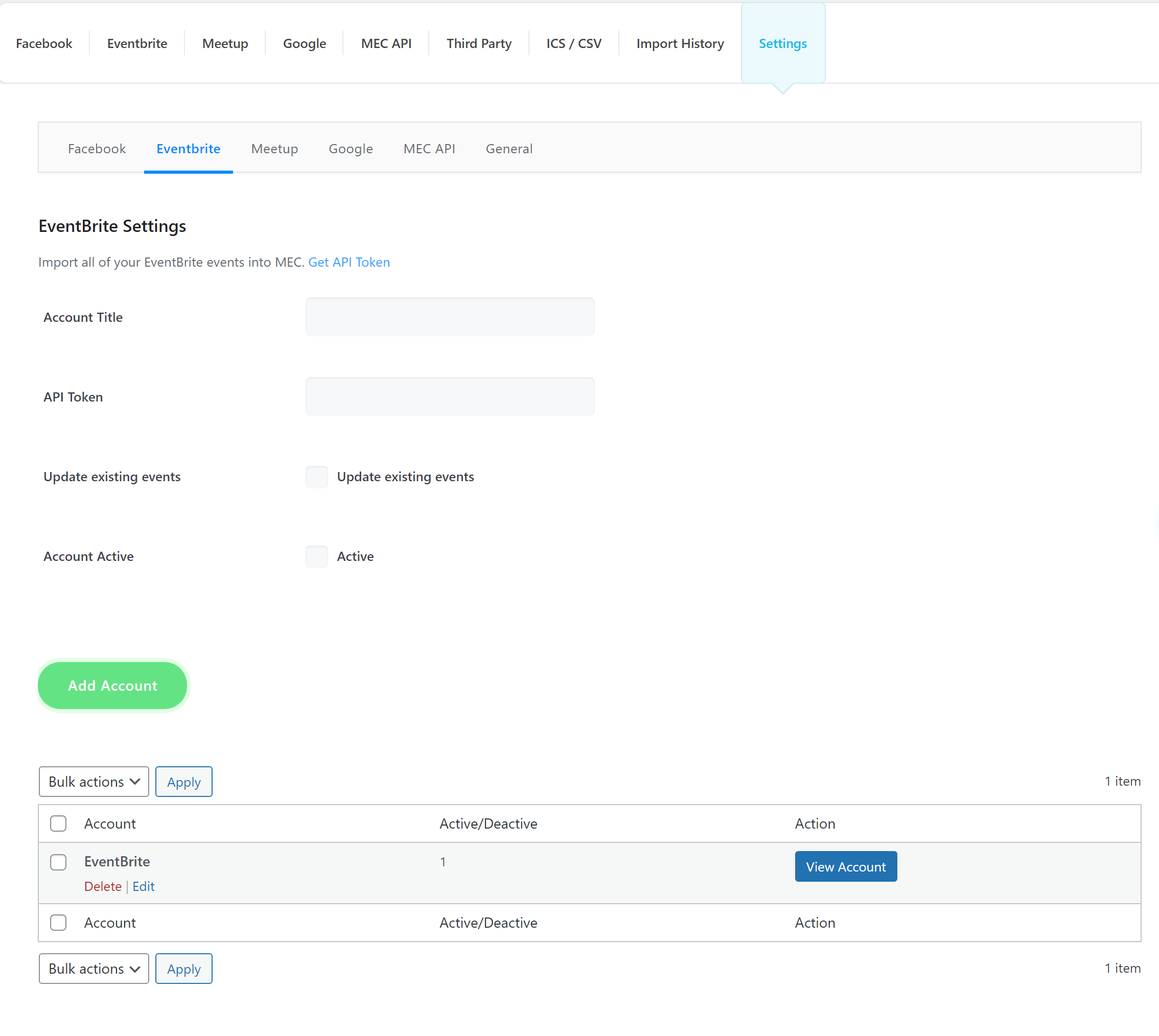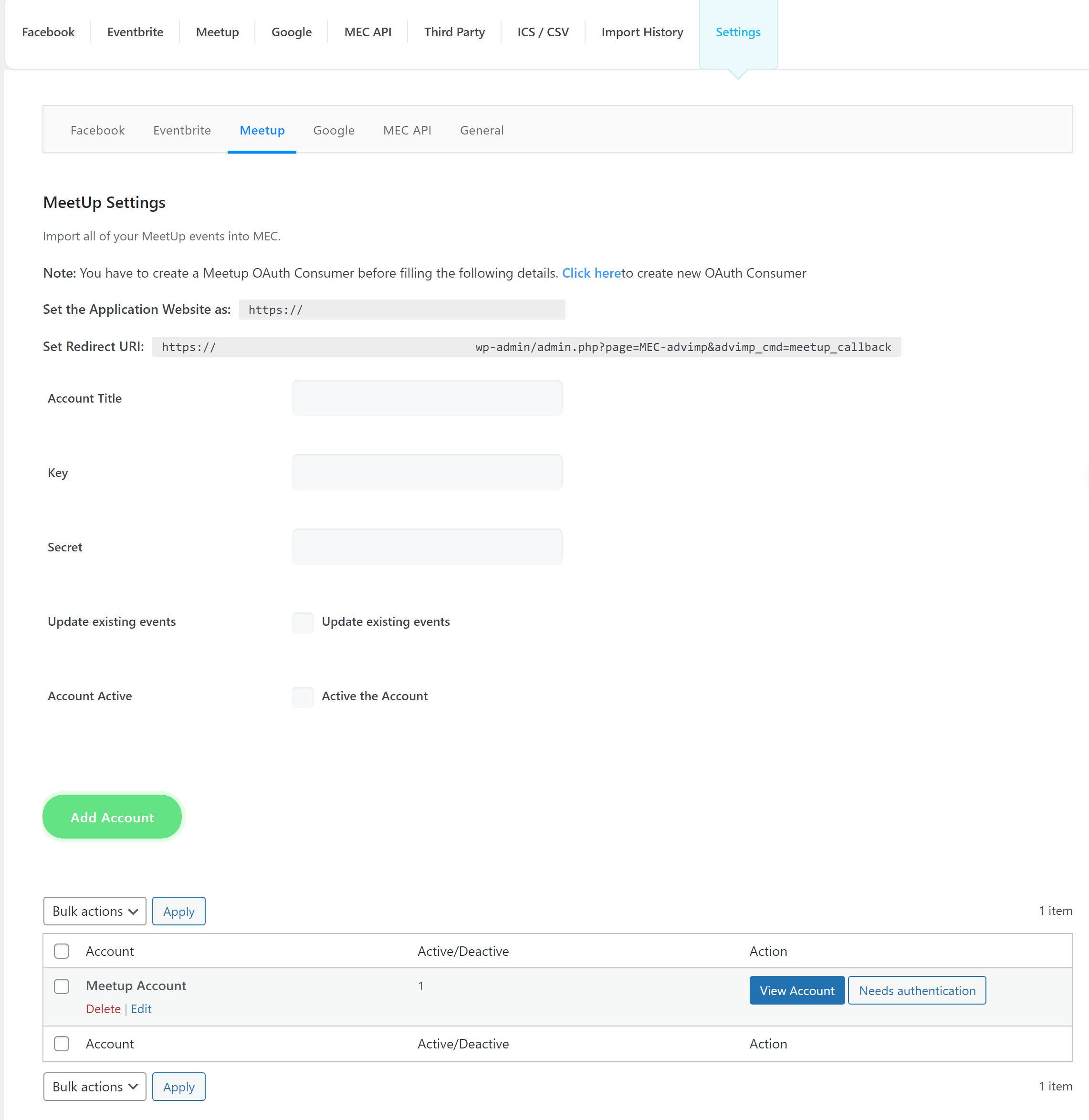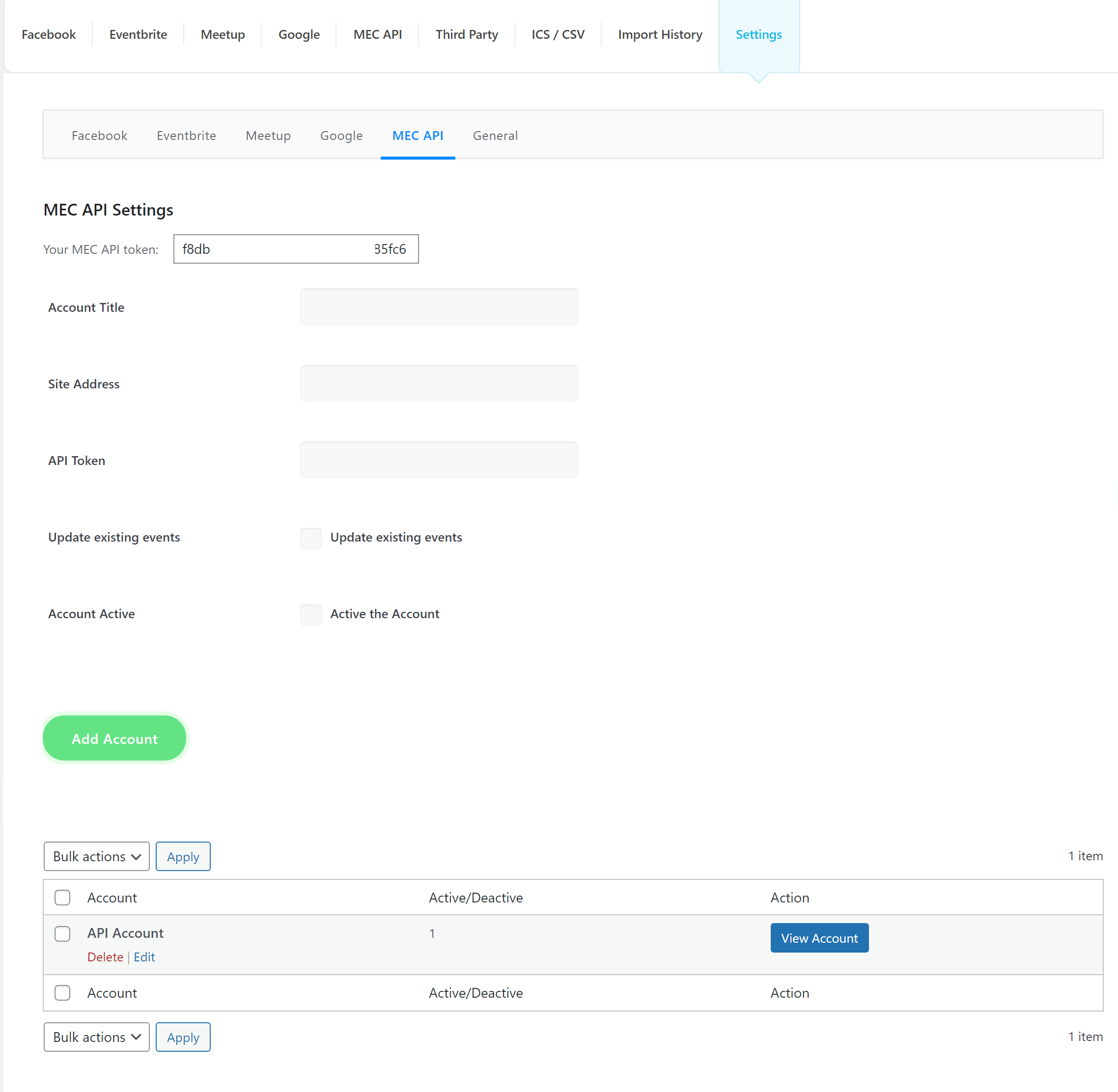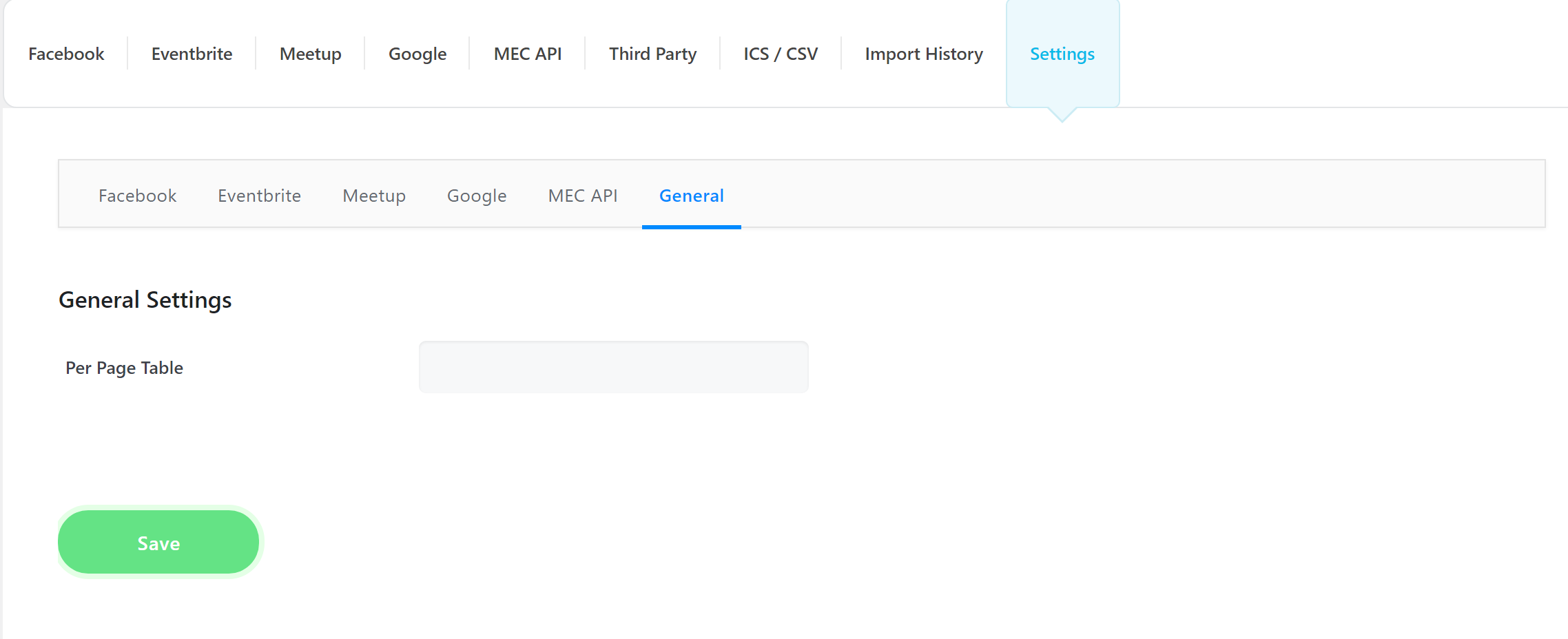Advanced Importer Addon
With Advanced Importer Addon, you can connect to Facebook, Google, Meetup, and Eventbrite unlimitedly. This makes the import process so easy. You should authenticate your account with just a few clicks and plan the import process. Also, with this plugin, you can have more third-party plugins for importing. You should initiate the process from a WordPress on which MEC is installed.
Advanced Importer Addon Installation
In the first step, Ensure that both MEC (Modern Events Calendar) and the Advanced Importer Addon are installed and activated.
Read Also:
How to install MEC and Addons?After activating the Advanced Importer addon, a new menu will be added to the M.E. Calendar. Click on it, and you will be redirected to the import page.
Advanced Importer Settings
To start, go to the Advanced Importer addon settings. You should connect an account to the importer. We show them to you one by one. You can connect as many accounts as you wish. To set the account, do as follows:
Facebook Settings
Follow every step mentioned in this link:
Read Also:
Import Facebook EventsTo proceed with the import process, you must give your dedicated URL to Facebook. Provide the dedicated URL in Valid OAuth Redirect URIs on Facebook. Other permissions are as the above mentioned.
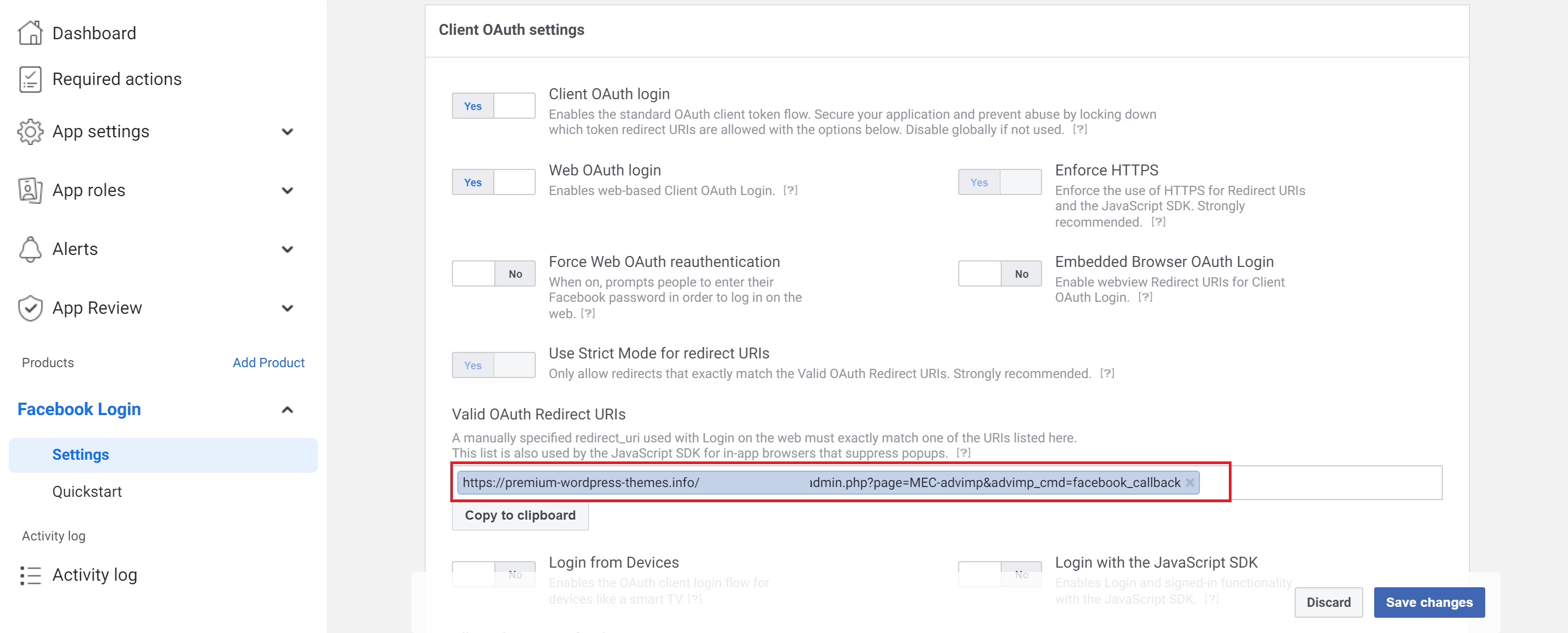
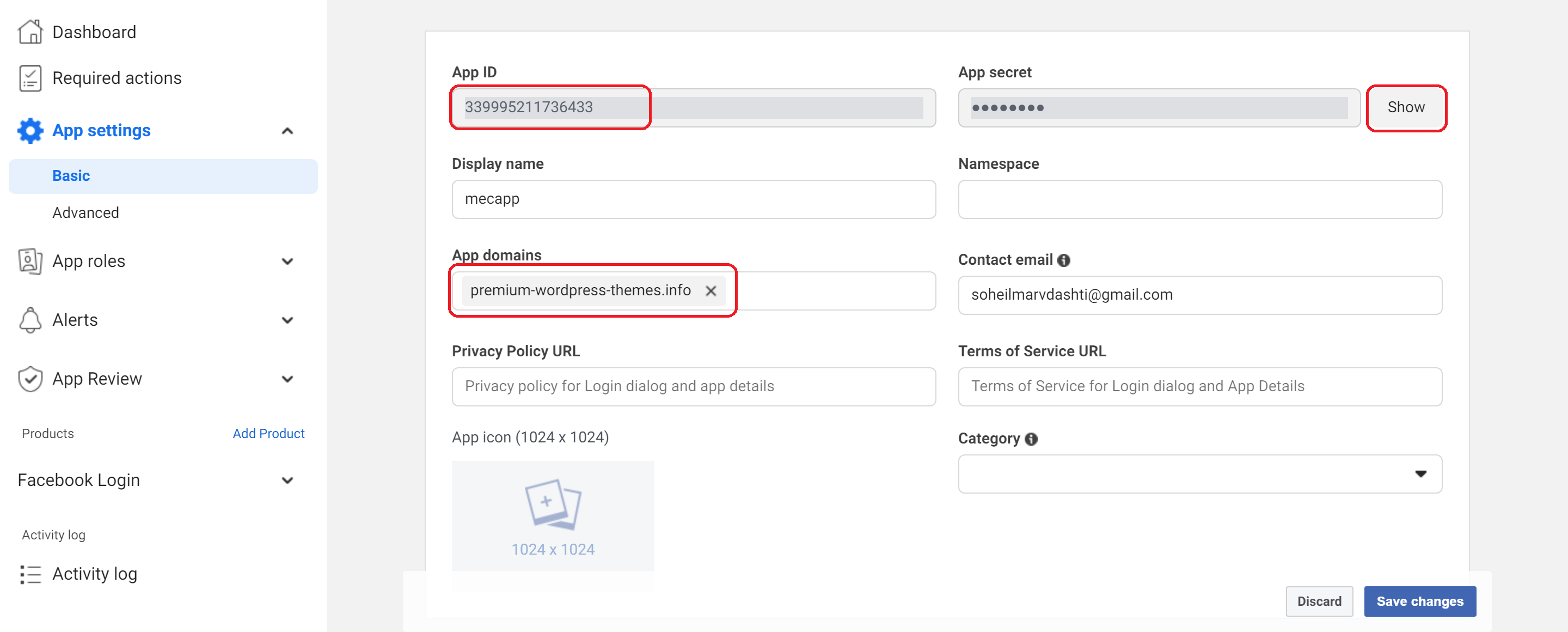
Now, fill in the information fields in the Advanced Importer.
Eventbrite Settings
To get an API Key, please click this link and follow the instructions carefully.
Once you arrive at the designated website, click the Get a Free API Key button. If you already have an Eventbrite account, log in and proceed with the steps; otherwise, you need to create a new account.
After completing the necessary steps as directed, you will receive your API Key.
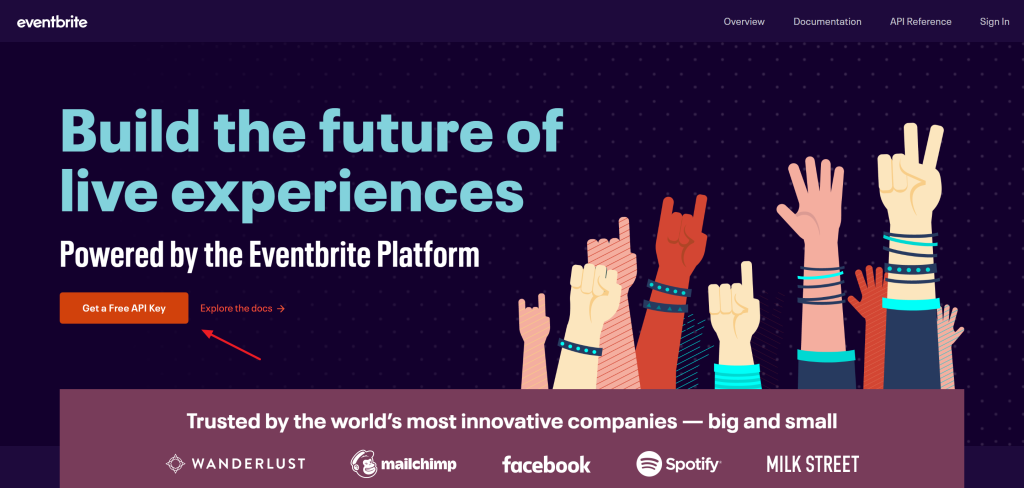
Meetup Settings
To get OAuth information, please click this link and follow the instructions carefully.
Once you arrive at the designated website, click the OAuth Clients button. If you already have an Eventbrite account, log in and proceed with the steps; otherwise, you need to create a new account.
The activation process may take up to an hour or two.
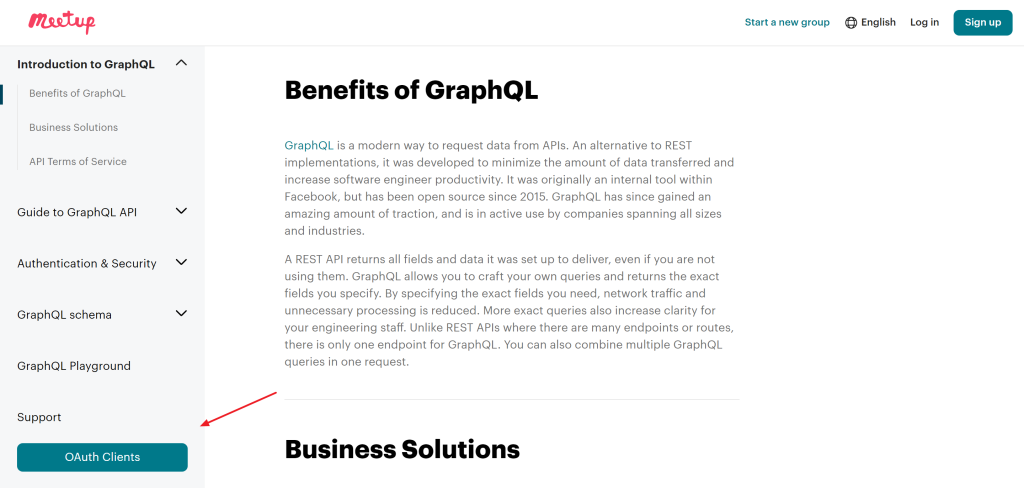
Google Settings
Follow the URL below to get API’s:
Read Also:
Creating Google Calendar API KeyYou must give your dedicated URL to Google to proceed with the import process. You should provide the URL via Authorized redirect URIs in Google. Other permissions are as the above mentioned.
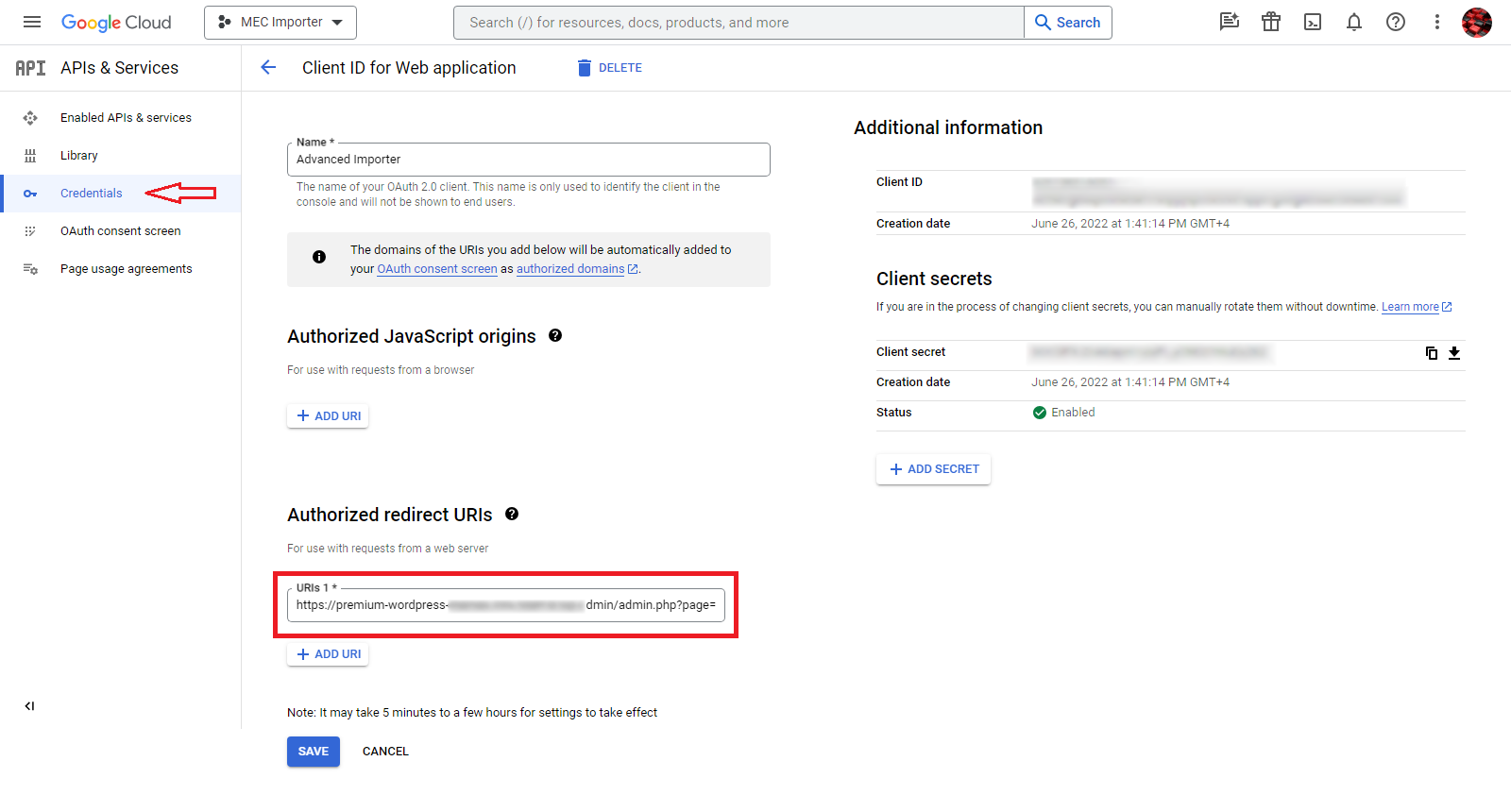
Now, fill in the information fields in the Advanced Importer.
MEC API Settings
Please navigate to the source website and copy the dedicated URL. Then, Go to the Advanced Importer menu on the target website. Begin by inputting the API Key into the relevant field, followed by entering the URL of your website in the designated area.
With these steps completed, the setup is now prepared for operation.
General Settings
You can set the number of events shown on each Page Table. This option helps you in the event-choosing process.
If you need more than 50 events, we suggest checking out your system configuration and ensuring it can handle such a load of information because fetching too many events requires an appropriate resource. For example, it should not be timed out, etc.
By default, six events are displayed on each Page Table.
Advanced Importer Customization

Eventbrite
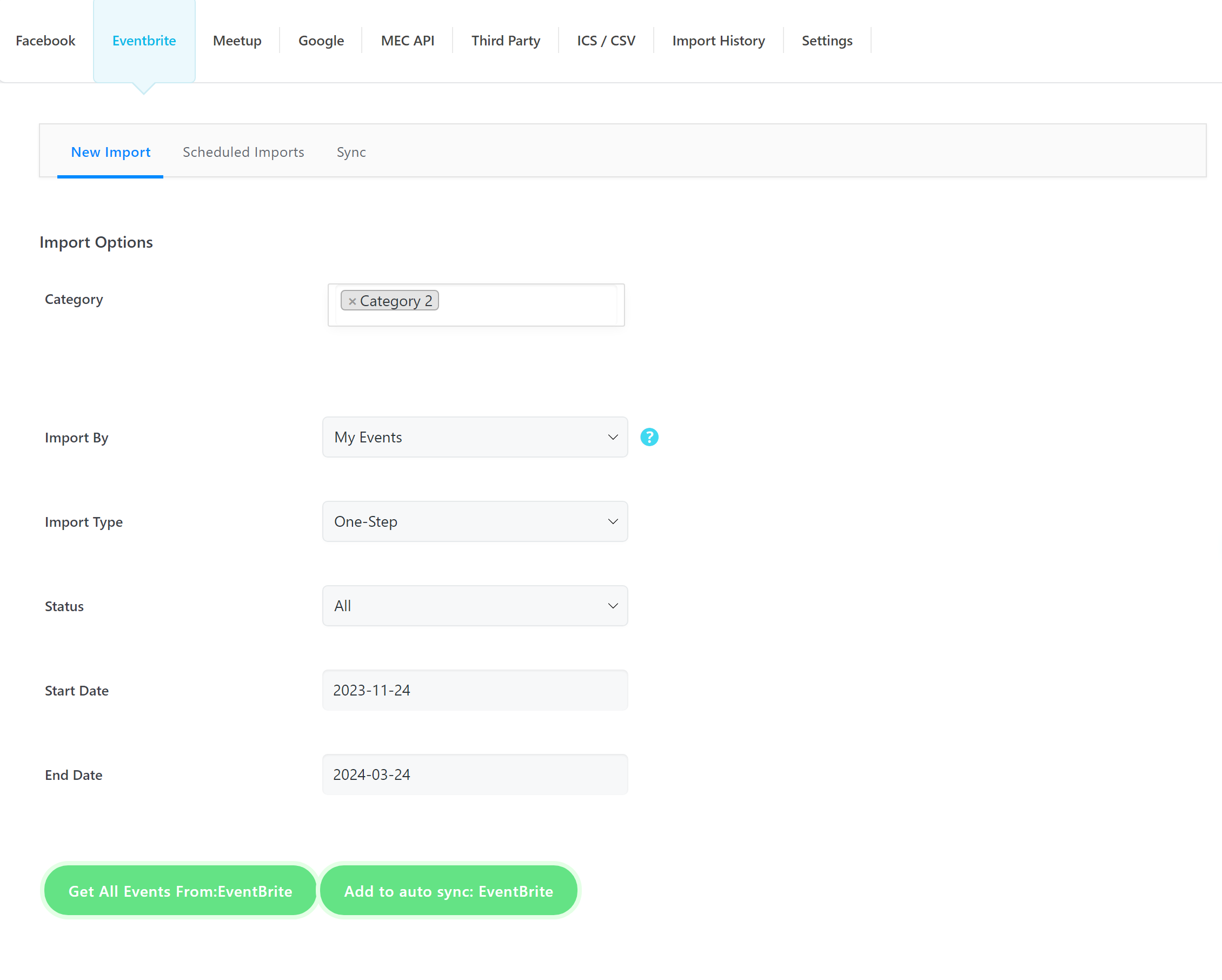
Meetup
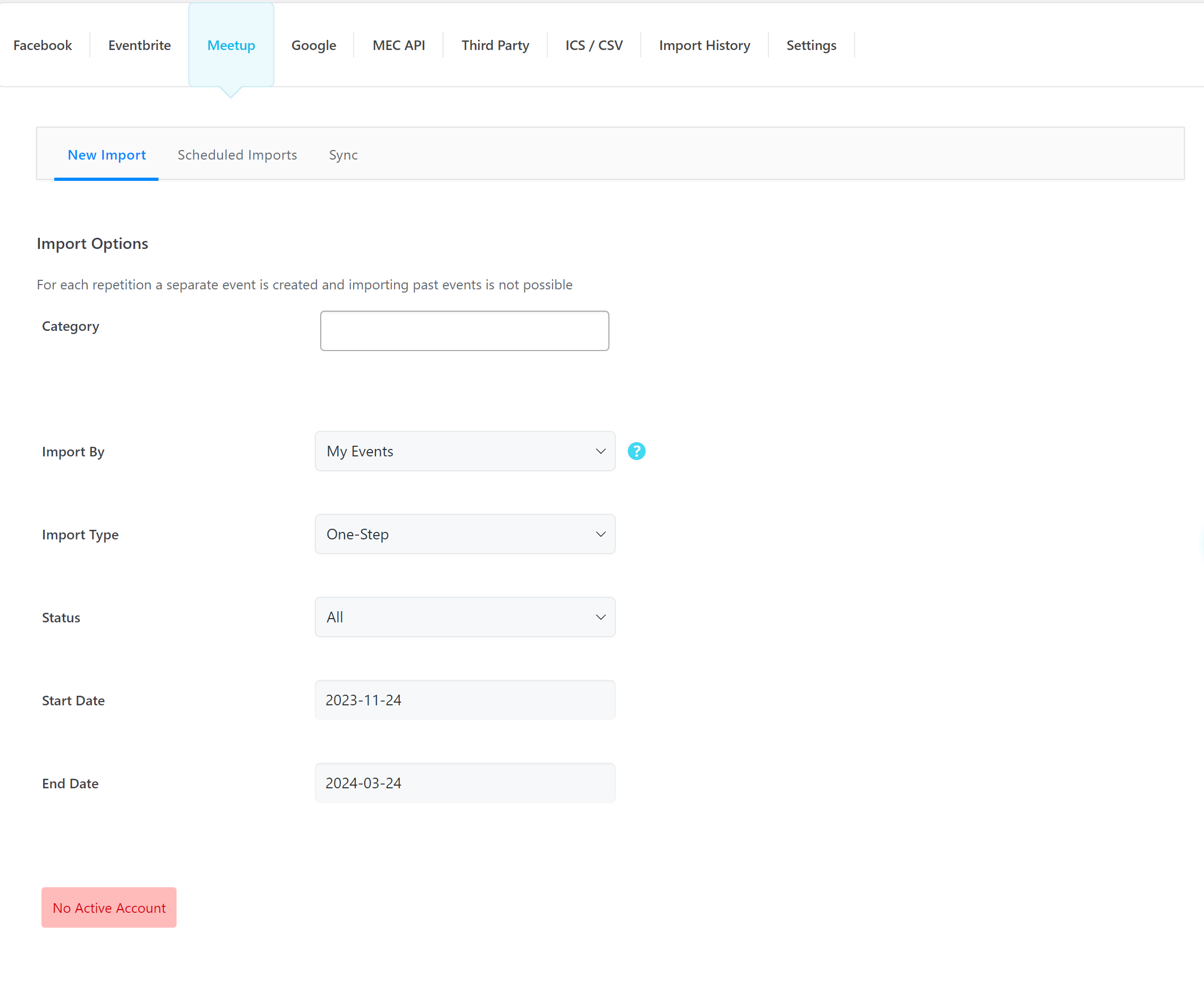
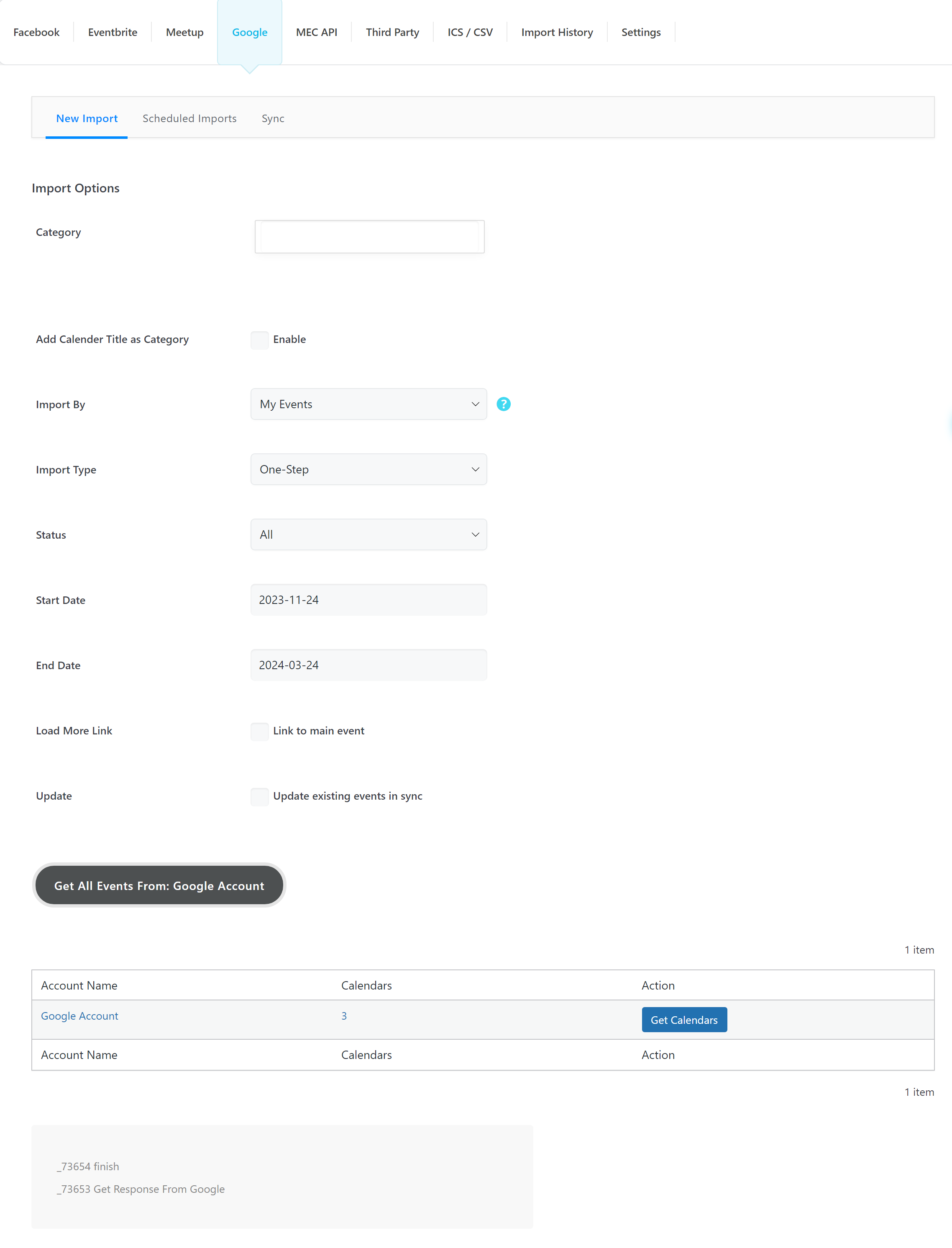
MEC API
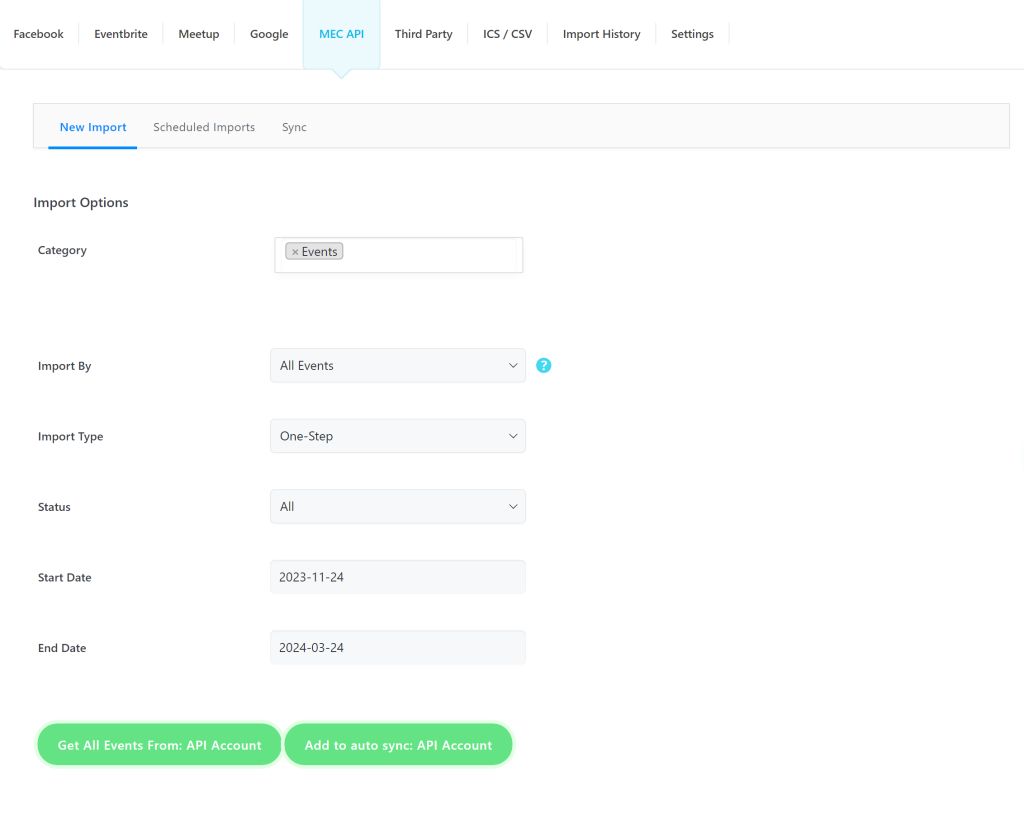
After adding your account, you should find your username at the bottom of the settings of each platform (they should be activated) and click on Need Authentication.
A new window opens, and you should log in to your account once or give access to the events. You should log out of settings and return to the main menu. After choosing the platform, choose the account from which you want to make the import.
For example, go to the Facebook tab to import from Facebook events. If you want to put the import into a specific category, go to the new import > import option and choose one.
Choosing where the import should be from you can be determined in the next field.
For instance, if you want to import several specific events, use event ID.
Then, you should set the importation type. You will see two items in this step.
One step means that you make the importation right then.
Scheduling means that the import process should be done at a specific time.
Opting ‘Scheduled’ for Import Type grants you a selection of timeframes ranging from Once Hourly to Once monthly, allowing you the flexibility to tailor the import timing to your specific requirements.

It is important to note that upon completion of a Scheduled import, you can view and manage the designated schedule under the Scheduled Imports tab, ensuring that you are always abreast of your planned imports.
In the next two fields, set the start date and end date. Finally, click the Get All Events From button to fetch the information.
For Google first, you will see the number of calendars. Click on Get Calendar to see the number of events. Click on Get Events to see the events list.
Choose some events or click on Download All Events to import them. You can also see your events on other pages.
Note 1: Regarding Google, you may need to go through the authentication process every 30 minutes.
Note 2: You may have made some changes to your Google Calendar and not see the changes. If so, clear your browser cache or wait 30 minutes to authenticate again.
Importing from Third-Party Plugins
If you use one of the Event Organiser, My Calendar, or Eventum plugins and you want to migrate to MEC, we suggest keeping them active. Using this menu, choose your plugin and then proceed with the import.
Please be advised that it is not necessary to maintain the plugins in an active state post-import. Once the import process has been successfully concluded, you can continue with MEC without further reliance on these plugins.
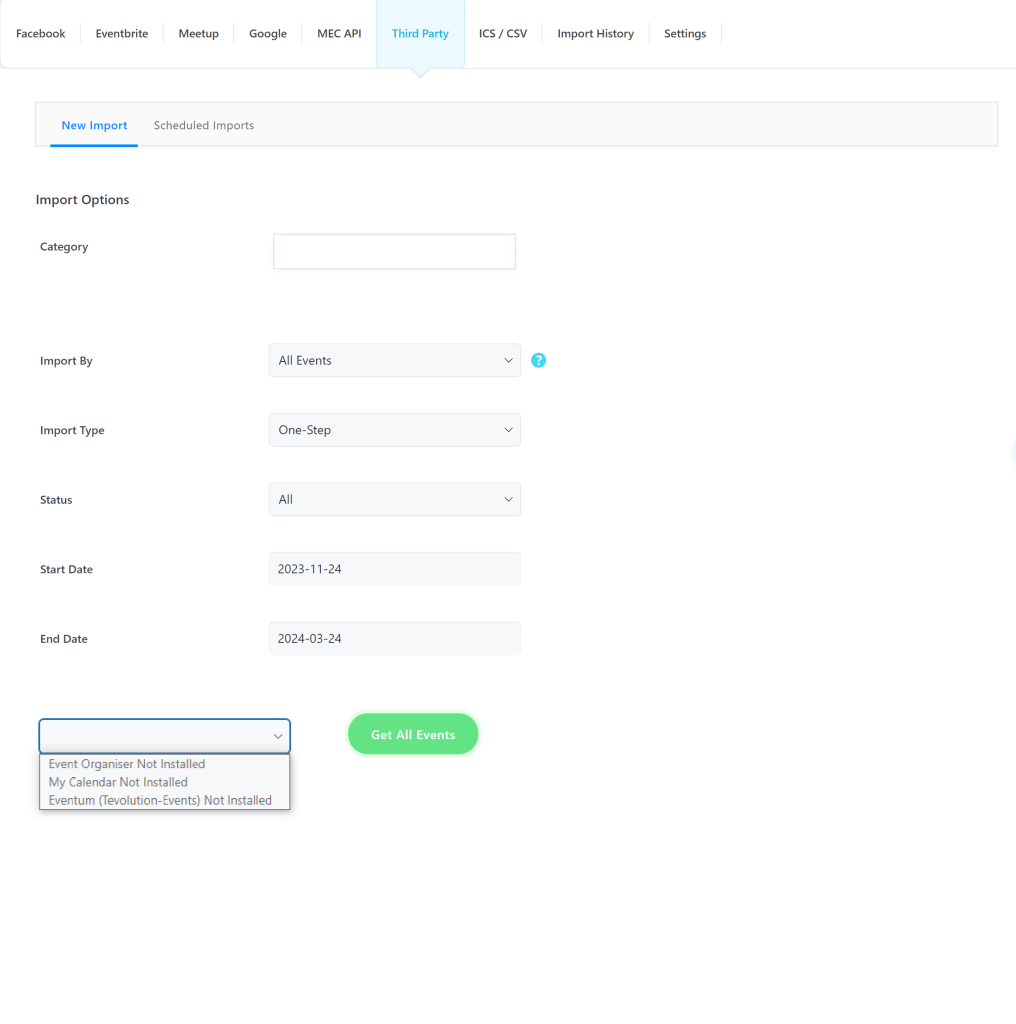
Importing by CSV / ICS
Should you possess a file in ICS or CSV format, you can import it directly.
Moreover, should you possess a URL corresponding to a file in ICS format, you are encouraged to use said URL to facilitate the download of the file.
Additionally, for organizational purposes and to enhance searchability, you are provided with the option to select a specific category to classify your imported events effectively. This will streamline the management of your calendar and aid in maintaining structured event records.
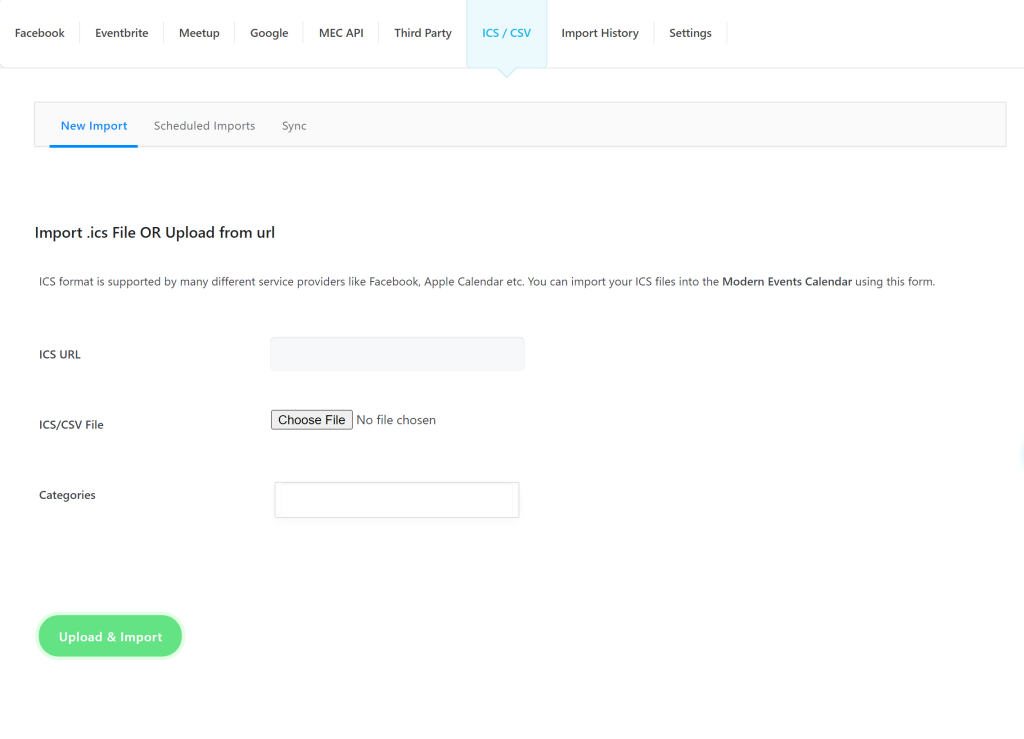
Import History
Within this interface, you can view a complete list of all imported events.
You are afforded the functionality to not only delete events but also to observe the categories assigned to them, as well as to verify the date of import and current import status, thereby maintaining meticulous records and oversight of your event management processes.
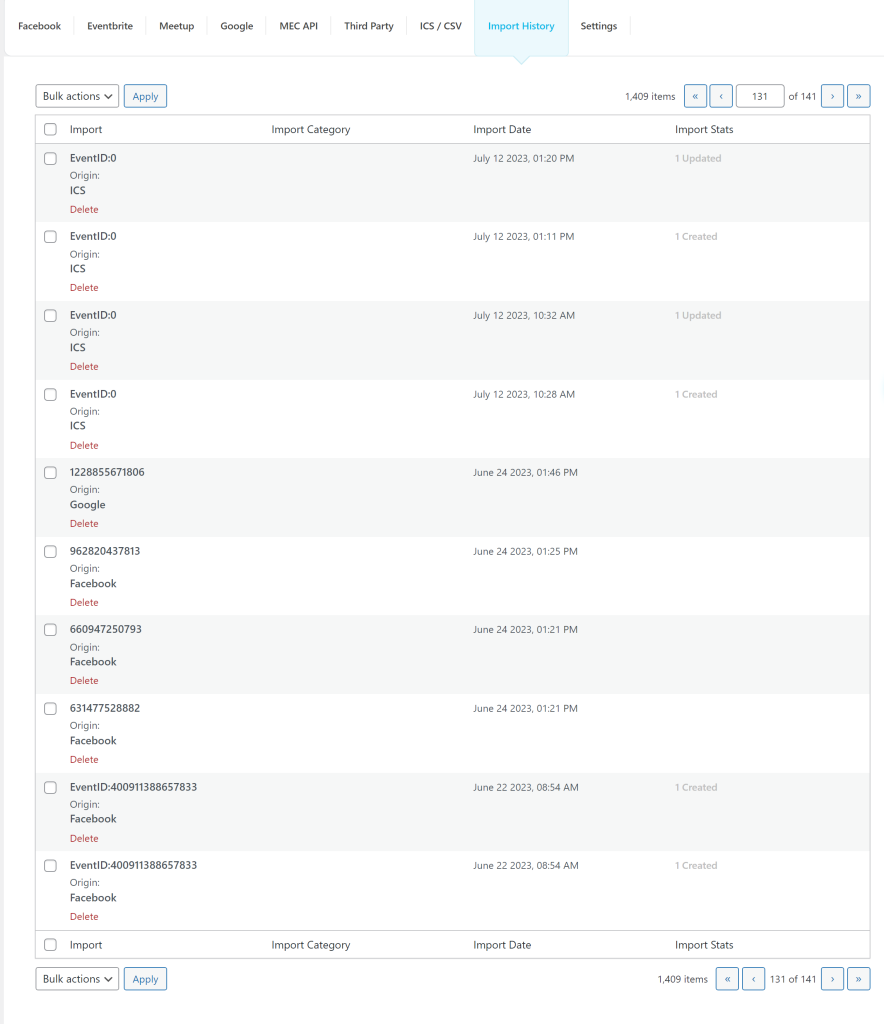
For more information about the Advanced Importer Addon, please visit this link.
Report Out Dated Content
If you think the content of this page does not reflect updated information, please let us know.

